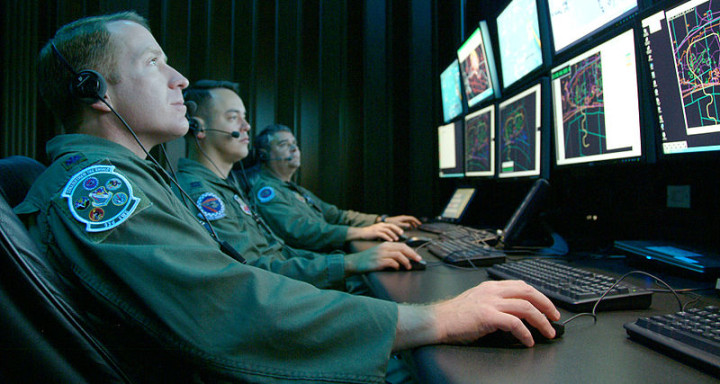By Parliamentarians for Nuclear Non-proliferation and Disarmament.
The Inter Parliamentary Union (IPU), the world body of over 160 parliaments, today adopted a resolution Cyber warfare: A serious threat to peace and global security, following a year of consultations by the resolution rapporteurs with cyber warfare experts and member parliaments.
The resolution, adopted in the closing session of the 132nd IPU Assembly, aims to assist parliamentarians to understand the potential for cyber-attacks, the nature of such attacks, the law that should govern military use of cyberspace, and policy approaches to protect civilian infrastructures from cyber-attacks.
The initial draft of the resolution did not mention nuclear weapons. Evidently the cyber-warfare experts and the resolution rapporteurs were not at the Vienna Conference on the Humanitarian Consequences of Nuclear Weapons where there were two presentations in the main plenary linking the two – Cyber risks in securing nuclear weapons from unauthorized or inadvertent use by Camille M. Francois and Lowering the Nuclear Threshold: The Dangerous Evolution of World Nuclear Arsenals toward Far-Flung Dispersal, Hair-Trigger Launch Readiness, and First Use Doctrines by Bruce Blair.
Nor had they read the analysis of Jason Fritz in ‘Hacking Nuclear Command and Control’ (paper commissioned by the International Commission on Nuclear Non-proliferation and Disarmament) on the possibilities for cyber-attacks on command and control systems that could lead to an unauthorised nuclear attack, or an attack in response to a fake alarm.
It appears that they had also not heard of the suggestions from high-level former government officials in the US that the role of nuclear weapons should be expanded to include nuclear deterrence as a response to a potential cyber-attack threat against critical infrastructure. (See Cyberwar and Nuclear War: the Most Dangerous of All Conflations, Foreign Policy in Focus, July 16, 2013).
PNND helped rectify these omissions by providing background information and draft text for the resolution. PNND also organised two educational events at the IPU Assembly this week: a screening of the movie ‘The Man Who Saved the World’ and a panel discussion on Eliminating risks of nuclear war by accident, cyber-attack or conflict escalation.
As a result the IPU Assembly, which includes the parliaments of most of the nuclear-armed States and their allies, adopted a final resolution:
- Noting that: military ICT systems for the deployment and use of force are susceptible to acts of cyber warfare that could lead to third parties intercepting and deploying such systems to cause unauthorized, illegal and destructive use of force… and especially concerned that the hacking of nuclear weapon command-and-control systems could result in the unauthorized launch and detonation of nuclear weapons and cause unparalleled catastrophes;
- Expressing concern about: the suggestion by military planners that nuclear deterrence be maintained as an option for dealing with the existential threat of a cyberattack,
- And recommending that: parliaments from nuclear-weapon States call on their governments to rescind launch-on-warning policies, stand down nuclear weapons from high operational readiness and extend the decision-making time for nuclear-weapon use in order to prevent unauthorized activation and deployment of nuclear weapon systems, pursuant to the negotiation of agreements to prohibit the use of nuclear weapons and achieve their elimination.
PNND will work with IPU member parliaments to implement the resolution on cyber-warfare (especially the text on nuclear weapons) and also to implement the resolution adopted by the IPU in 2014 on Toward a Nuclear Weapon Free World: The Contribution of Parliaments.
The IPU 132nd Assembly also adopted a declaration on sustainable develolpment goals (the Hanoi Declaration), a resolution on water governance and a resolution on international law as it relates to national sovereignty, non-intervention in internal State affairs and human rights.
The next IPU Assembly will be held in Geneva in October 2015.










